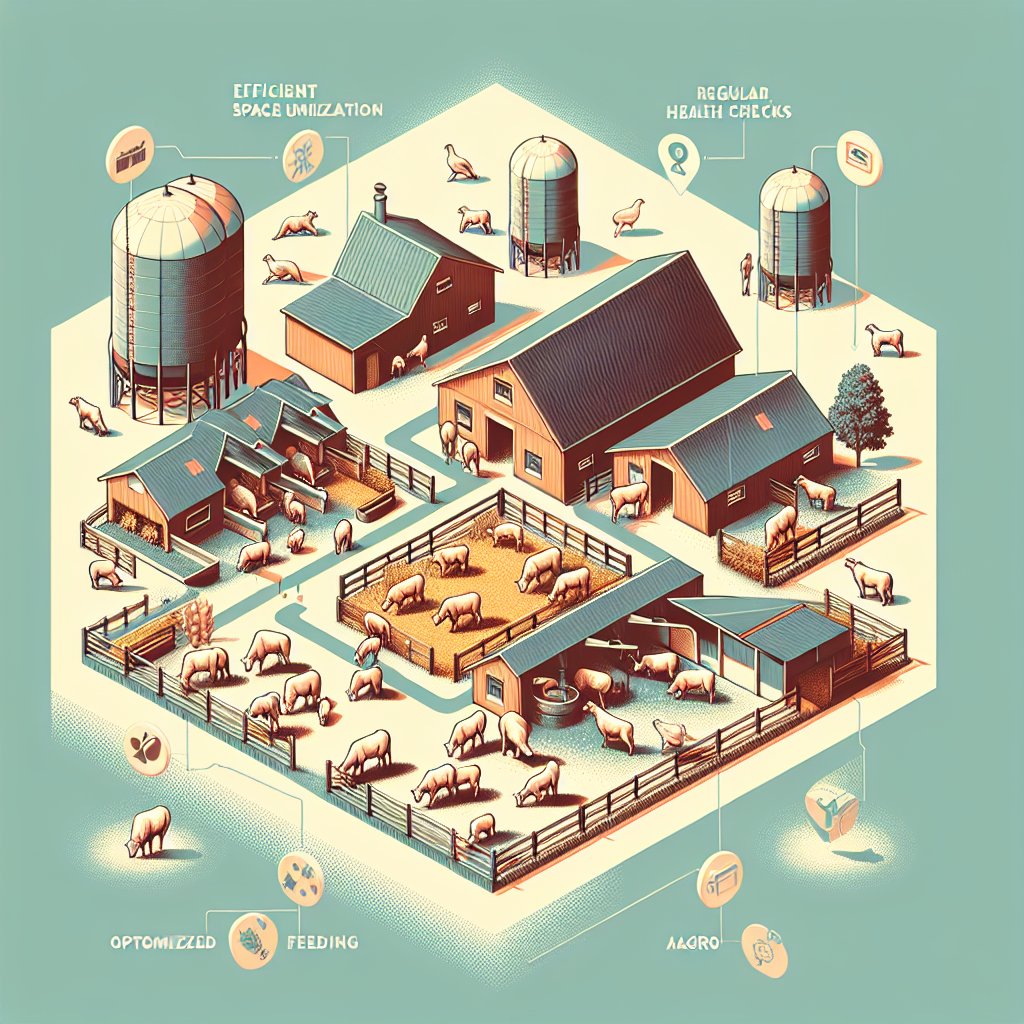
Managing livestock efficiently on a small farm is a multifaceted challenge that requires a blend of traditional knowledge and modern techniques. Small-scale farmers must navigate various aspects of animal husbandry, from feeding and health care to breeding and waste management, all while ensuring sustainability and profitability. This article delves into the essential strategies and practices that can help small farm owners optimize their livestock management.
Understanding Livestock Needs
One of the fundamental aspects of efficient livestock management is understanding the specific needs of the animals. Different species and breeds have unique requirements in terms of nutrition, housing, and care. For instance, cattle, sheep, and goats each have distinct dietary needs that must be met to ensure their health and productivity. Providing balanced nutrition is crucial, as it directly impacts growth rates, reproduction, and milk production.
To meet these nutritional needs, small farm owners should consider formulating their own feed or purchasing high-quality commercial feeds. It is essential to include a mix of carbohydrates, proteins, vitamins, and minerals in the diet. Additionally, access to clean water is vital for all livestock, as dehydration can lead to severe health issues.
Beyond nutrition, understanding the behavioral and social needs of livestock is equally important. Animals such as pigs and chickens thrive in environments where they can express natural behaviors. Providing adequate space, enrichment, and social interaction can reduce stress and improve overall well-being, leading to better productivity.
Implementing Sustainable Practices
Sustainability is a key consideration for small farm owners aiming to manage their livestock efficiently. Implementing sustainable practices not only benefits the environment but also enhances the long-term viability of the farm. One approach is to adopt rotational grazing systems, which involve moving livestock between pastures to prevent overgrazing and promote soil health. This practice can improve pasture quality, increase biodiversity, and reduce the need for chemical fertilizers.
Another sustainable practice is the integration of livestock with crop production. This approach, known as agroecology, involves using animal manure as a natural fertilizer for crops, which can reduce reliance on synthetic inputs. Additionally, crop residues can serve as feed for livestock, creating a closed-loop system that minimizes waste and maximizes resource use.
Water management is also a critical component of sustainable livestock farming. Implementing rainwater harvesting systems and efficient irrigation techniques can help conserve water resources. Moreover, managing waste through composting or biogas production can reduce environmental pollution and provide additional income streams for the farm.
Health and Welfare Management
Ensuring the health and welfare of livestock is paramount for efficient farm management. Regular health checks and vaccinations are essential to prevent diseases and maintain productivity. Small farm owners should establish a relationship with a local veterinarian to access professional advice and services when needed.
Preventive measures, such as maintaining clean and hygienic living conditions, can significantly reduce the risk of disease outbreaks. Proper sanitation practices, including regular cleaning of barns and equipment, are crucial in minimizing the spread of pathogens. Additionally, implementing biosecurity measures, such as controlling access to the farm and quarantining new animals, can further protect livestock health.
Animal welfare is not only an ethical consideration but also a practical one, as stress and poor living conditions can negatively impact productivity. Providing comfortable housing, appropriate bedding, and protection from extreme weather conditions are essential components of good welfare practices. Ensuring that animals have enough space to move and express natural behaviors is also important for their well-being.
Efficient Breeding and Reproduction
Breeding and reproduction are critical aspects of livestock management that can significantly influence farm efficiency. Small farm owners should develop a breeding plan that aligns with their production goals, whether it be for meat, milk, or fiber. Selecting the right breeds and individuals for breeding can enhance desirable traits such as growth rate, disease resistance, and fertility.
Artificial insemination and other reproductive technologies can offer small farms access to superior genetics without the need for maintaining a large number of breeding animals. These technologies can improve herd quality and productivity while reducing costs associated with keeping breeding males.
Monitoring reproductive performance is essential to identify any issues early and take corrective actions. Keeping detailed records of breeding dates, pregnancy checks, and birthing outcomes can help farmers make informed decisions and improve reproductive efficiency over time.
Conclusion
Efficient livestock management on a small farm requires a comprehensive approach that addresses the diverse needs of the animals while promoting sustainability and profitability. By understanding livestock needs, implementing sustainable practices, ensuring health and welfare, and optimizing breeding strategies, small farm owners can enhance their operations and achieve long-term success. Embracing both traditional knowledge and modern innovations will be key to navigating the challenges and opportunities in small-scale livestock farming.

